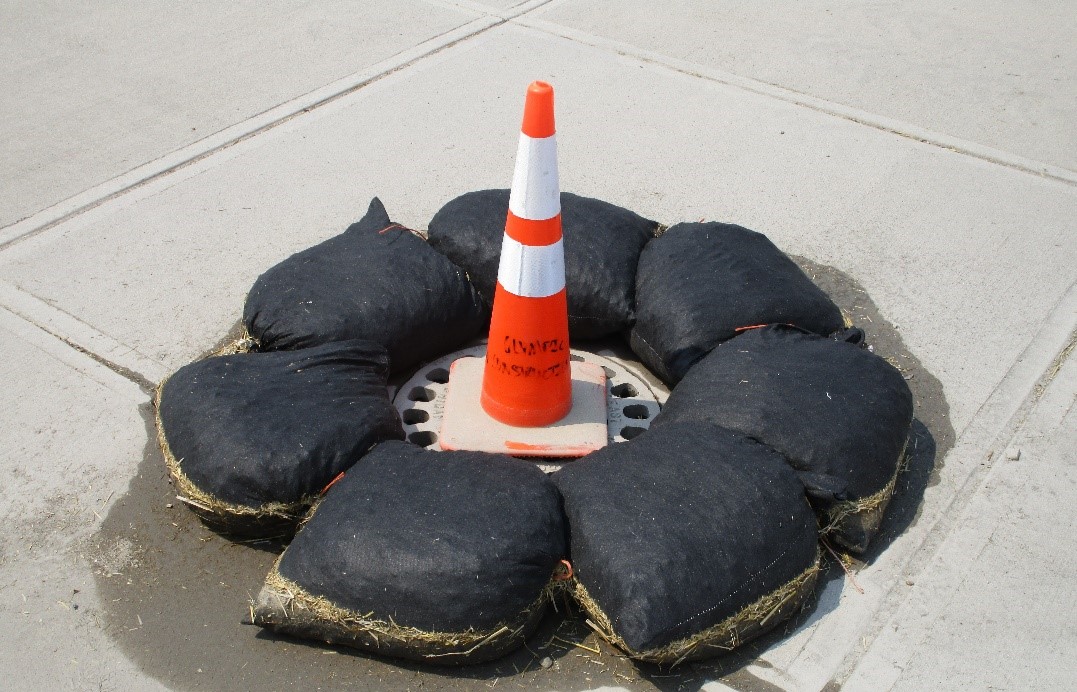Pollution Prevention & Good Housekeeping

Objective
To ensure that University operations (i.e., open space maintenance, fleet management, building maintenance, utility line construction, etc.) are performed in ways that will minimize the impact to stormwater quality.
Permit Requirements
To prevent or reduce polluted runoff from activities conducted by the MS4, an operation and maintenance program must be developed and implemented that includes:
- A training component with the goal of preventing or reducing pollutant runoff from operations and construction activities.
- An inventory of facilities owned and operated by the MS4.
- Maintenance Activities, schedules, and ongoing written inspection procedures for structural and non-structural BMPs.
- BMPs to reduce floatables and other pollutants discharged from the MS4 as well as controls to reduce the discharge of pollutants from:
- MS4 owned and operated streets, roads, highways, and parking lots
- Maintenance and storage yards with exposed bulk materials
- Fuel storage facilities
- Fleet maintenance shops with outdoor storage areas
- Salt/sand storage areas
- Waste transfer stations
- Procedures for the proper disposal of waste removed from the storm sewer and other areas of the MS4.
- Activity tracking to document compliance with the permit and prepare the annual report.
Examples
Activities that are part of the University’s Stormwater Quality Management Plan include:
- Develop a comprehensive Stormwater Operations Manual that includes all policies/procedures/BMPs utilized to meet permit requirements.
- Update the BMP O&M Manual to include specific maintenance requirements, a calendar of required activities, and responsibilities for each existing post-construction BMP.
- Develop procedures for rainwater harvesting system monitoring and reporting.
- Create a policy and/or procedures surrounding stormwater protection during emergency/unplanned events.
- Create policy/procedures for unknown spill cleanup.
- Update the Employee training program.
- Evaluate the pollution prevention measures for coal stockpiles and upgrade or maintain as necessary.
- Develop a Waterfowl Management Program in response to local impairments.
- Develop a stem/chilled water infrastructure repair priority list.
For more information regarding the University’s efforts to meet these MCM requirements please see our SWQMP and Annual Report sections. Here you will find information about our planned tasks, measurable goals, and scheduling as well as information on activities conducted each year. To learn more about what the University is doing to protect and improve stormwater quality see the Protecting our Streams section.
